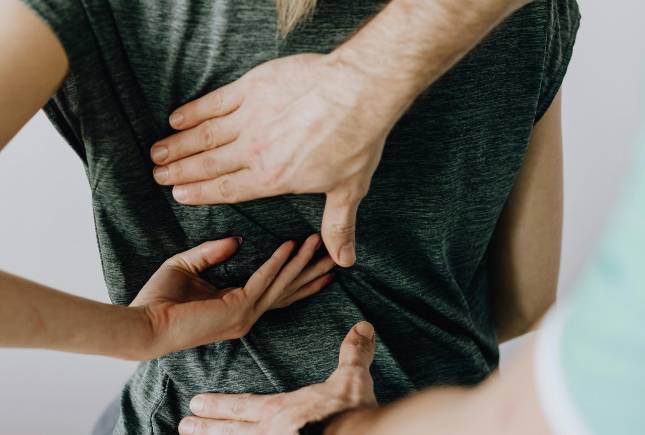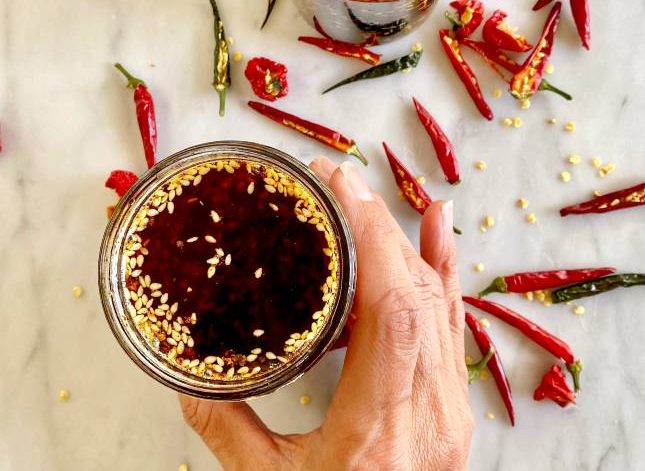Perimenopause is not simply a great hormonal event, it’s a catalyst for a range of inflammatory conditions including joint pain, morning stiffness, arthritis, cardiovascular disease, chest pain and depression associated with inflammatory factors in the brain. Read on to learn more about why Perimenopause is a great inflammatory event in a woman’s life and how we can better prepare ourselves to manage it.
Perimenopause is a transition period that all women will experience in the lead up to menopause. It starts with some changes in the menstrual cycle, often this could be a change in the volume of flow each bleed, or it could be a change in cycle duration of more than 7 days. So you might find your cycles are getting longer or shorter. In our fertile years we tend to range beteween a 26-32 day cycle, with 28 as the average (but it’s different for every woman). Once you start noting changes in your cycles, their duration, qualities and side symptoms like bloating….then you know you’re in perimenopause. When you reach one year since your last period, you’ve reached menopause. The average duration of perimenopause is 8-12 years.
What are perimenopause symptoms?
Let’s do a quick check-in for you. These are the four most common signs of perimenopause that I see in clinic. How many of them have you experienced?
- A change in mood, it could be irritability or low mood. Sometimes you might react angrily and then feel like “this isn’t me!”
- Your periods are getting really heavy, or too light, and the cycles are becoming shorter or longer
- A growing waistline, which is feeling a little bit like an extra tyre of fatty tissue
- Hot flashes or night sweats
- Changes in your sleep, this could be more difficulty getting to sleep or waking through the night one or more times
- Waking up stiff, sometimes with back stiffness or pain

Images by Karolina Grabowski
Apart from a naturopath (like me :)!) you might want to find a good physio, acupuncturist and osteopath in perimenopause. I’ve found them essential in my perimenopause journey to reduce muscle and joint pain, persisting inflammation and just for self care.
For way too long we’ve focussed on what happening with our menstruation and our body composition when it comes to menopause. But what I’ve learnt from nearly two decades in clinical practice now, is that underneath the weight gain, modo changes and hot flashes is a whole lot of inflammation. A number of aspects of mimdlife changes drive inflammation like rising cortisol levels and chaos with the hunger hormones leptin and ghrelin leading to overeating, which in itself causes inflammation.
Some of the symptoms that can act as markers for inflammation in perimenopause are:
- chronic joint pain
- pain with exercise
- morning stiffness
- arthritis
- cardiovascular disease signs like high cholesterol
- chest pain
- depression is associated with inflammatory factors in the brain
- skin changes like rosacea or facial rash
A 2020 study referred to perimenopause as a ‘systemic inflammatory phase that enables later neurodegenerative disease’ because evidence shows this life stage in women disrupts neurological systems that are regulated by oestrogen.
Another 2020 study examined hormone levels and markers of inflammation in perimenopausal women and they identified these common features in the participants:
- significantly higher weight
- significantly higher BMI
- significantly higher abdominal circumference (yep! That’s the menopot)
- significantly higher glucose levels
- significantly higher triglyceride levels
- Higher high-density lipoprotein cholesterols
- significantly higher levels of metabolic hormones including leptin, insulin, C-peptide, resistin, GIP, adipsin
- significantly higher levels of inflammatory markers like interleukin-6 (IL-6)
When a woman comes to see me to get her hormones under control in perimenopause, it’s a multifaceted journey and I’ll always screen for inflammation as a part of every consultation.
You may not know whether these hormones and markers are abnormal in your own body. That’s something we can arrange in a consultation. However, there’s no harm at all in taking those first steps towards better hormonal health right now. I’d suggest downloading this free Anti-Inflammatory Diet guide and using it as a guide to eating better. Along with this, here are my favourite anti-inflammatory health hacks that I do daily, or at least a few times a week:
- Ginger tea in the morning. A couple slices of fresh Ginger in hot water, sipped in the morning. Ginger is a great anti-inflammatory herb.
- A high quality vitamin C powder every day. I usually add my powders to smoothies in the warmer months, and just to water in the cooler months. Vitamin C is essential if you’re trying to reduce inflammation
- Don’t over-exercise or strain yourself. This creates inflammation. Exercise moderately every day, enjoy the movement, but don’t feel like you have to break records.
- Meditate daily to calm down your adrenals and prevent cortisol spikes.
Another aspect of inflammation in perimenopause is the effect on cognition. Ever felt like you’re not learning or remembering things as well as you used to? Or that mental fog has become a part of your daily life? It could be perimenopause. And it isn’t just focus and memory that are affected. For many perimenopausal women it’s mood, motivation and calm. The changes in our brain chemistry as a result of rising inflammation in midlife are strongly associated with depression in perimenopause.
This is why I work on optimising neurochemistry and central nervous system health with all of my clients. It’s both preventive and forward-planning for great cognitive health and mood in our later years.
Know that everything you do prior to menopause is setting your body up to be healthier and more balanced and vibrant later in life. So look out for any of these symptoms because we can get to work on your health as soon as you’re ready.
If you can be curious about what’s changing in your body, what works for you and your physiology…and what’s going on with your hormones (!) then you’re going to be well placed when you get to the latter years of perimenopause. And if you’re already there, and perhaps you didn’t necessarily forward plan it, then let’s get you onto some really great herbs now. Just reach out, I’m here for you 🙂


Hey there! Welcome to my world of totally natural and powerful healing medicines. Medicines from nature. Medicine from Source. I’m a naturopath and herbalist with extensive clinical experience working with a range of health conditions including hormonal, metabolic, mental health, sleep and more.
I’ve brought together years of clinical and teaching experience, academic skill and curiosity to bring you this blog. I hope you enjoy it! Don’t forget to listen to my podcast ‘Well Woman’ and follow me on the socials. You’ll also find new videos regularly on my YouTube channel @sulinsze.

References
- McCarthy, M., & Raval, A. P. (2020). The peri-menopause in a woman’s life: a systemic inflammatory phase that enables later neurodegenerative disease. Journal of neuroinflammation, 17, 1-14.
- Guo, L., Ren, L., & Zhang, C. (2018). Relationship between depression and inflammatory factors and brain-derived neurotrophic factor in patients with perimenopause syndrome. Experimental and therapeutic medicine, 15(5), 4436-4440.
- Palla, G., Ramírez-Morán, C., Montt-Guevara, M. M., Salazar-Pousada, D., Shortrede, J., Simoncini, T., … & Chedraui, P. (2020). Perimenopause, body fat, metabolism and menopausal symptoms in relation to serum markers of adiposity, inflammation and digestive metabolism. Journal of Endocrinological Investigation, 43(6), 809-820.




